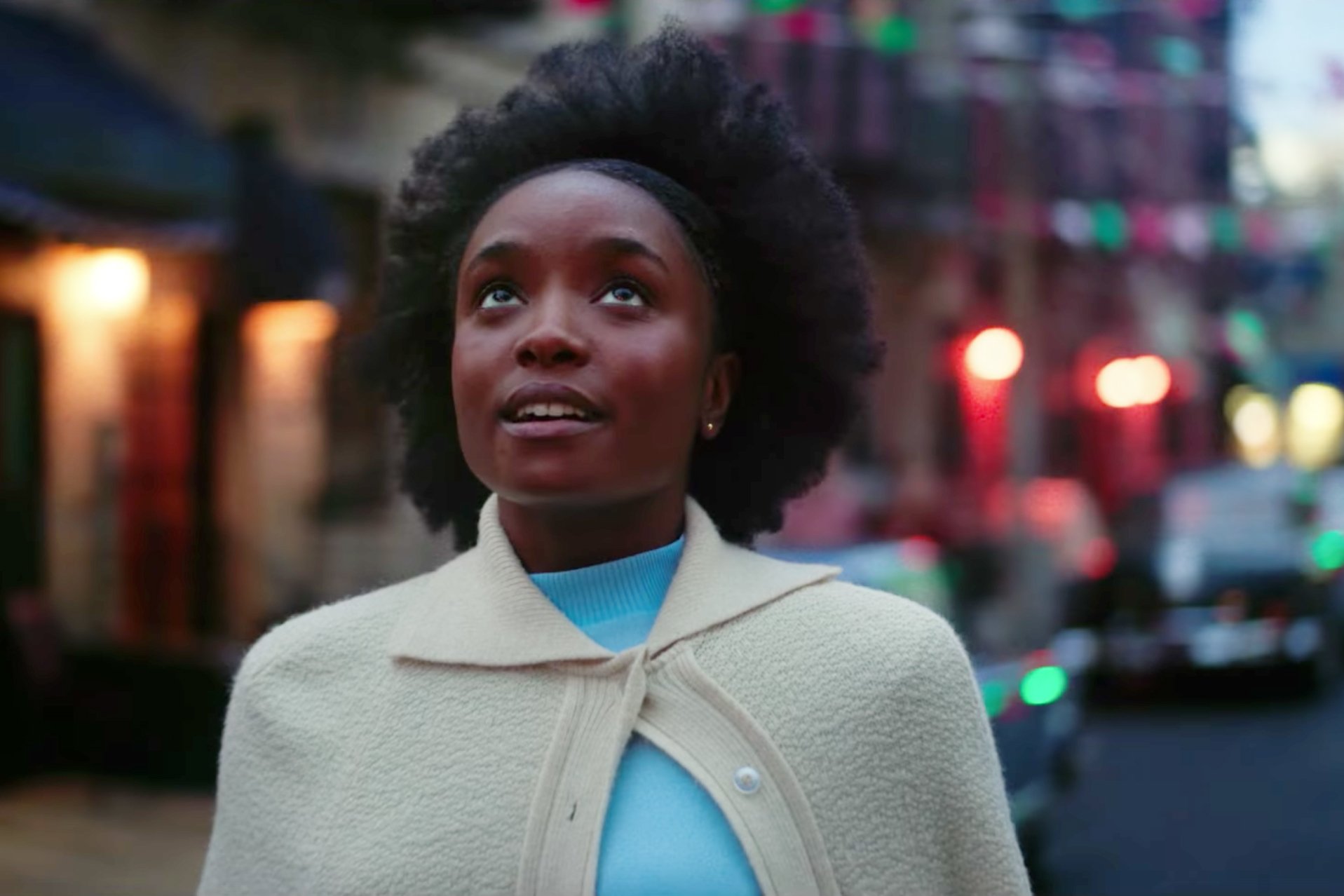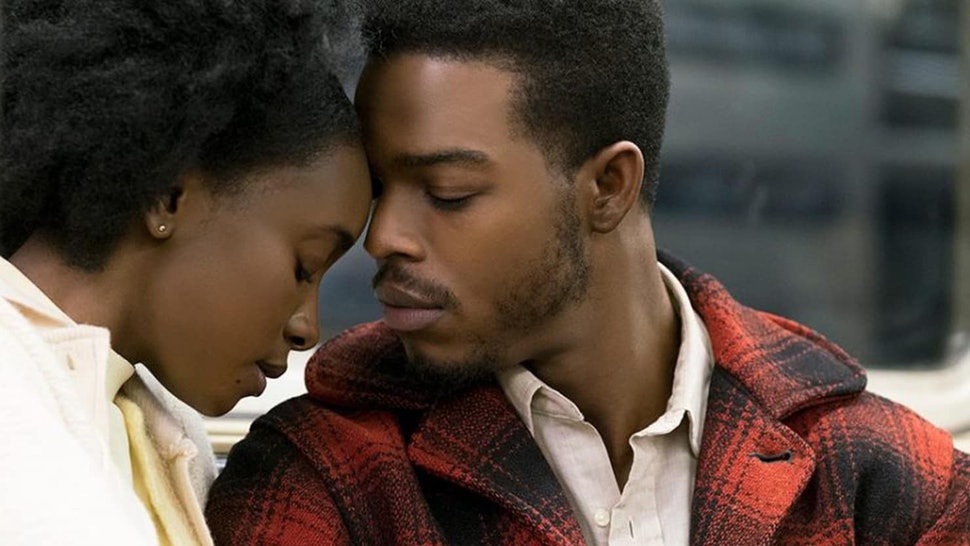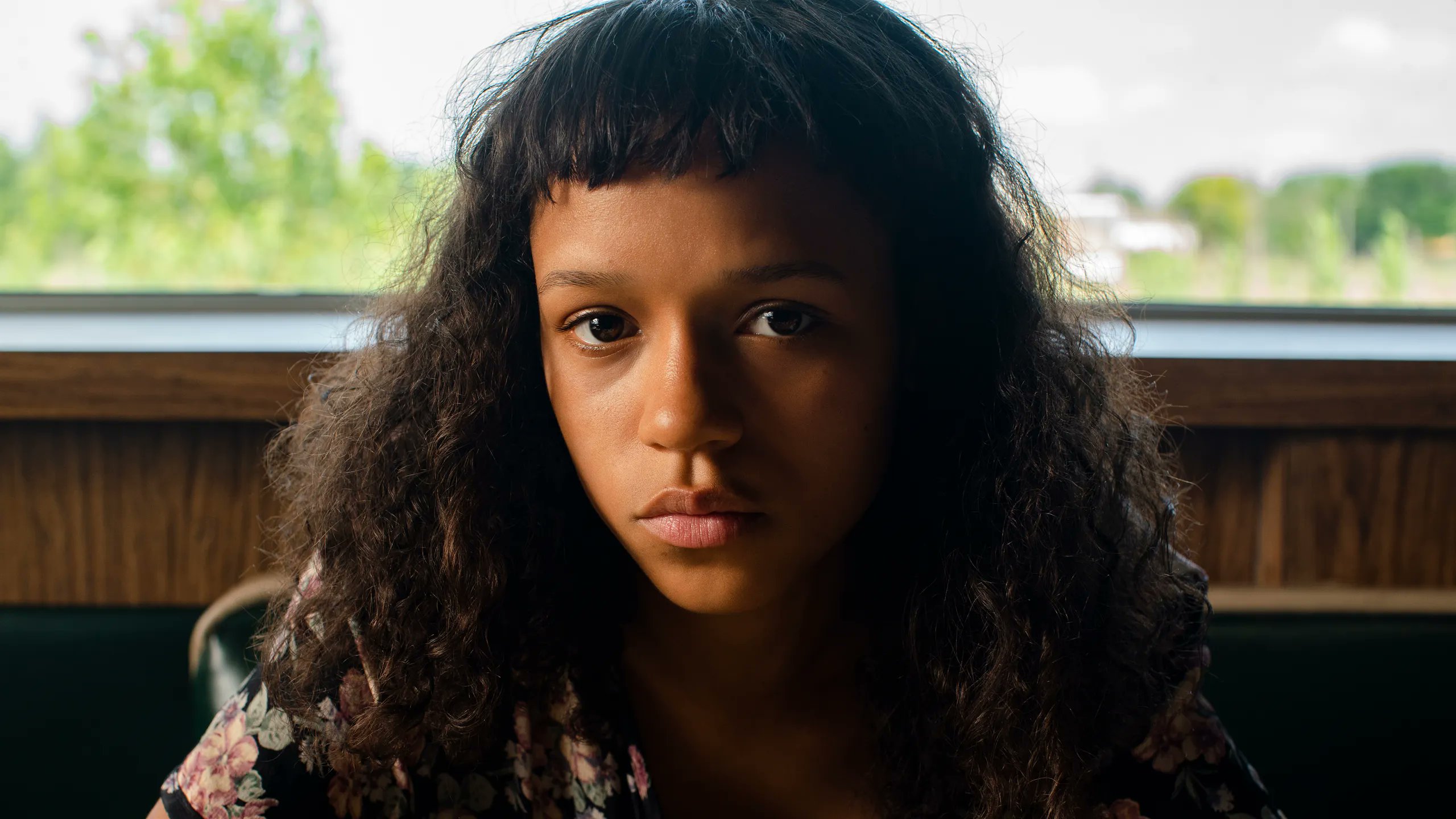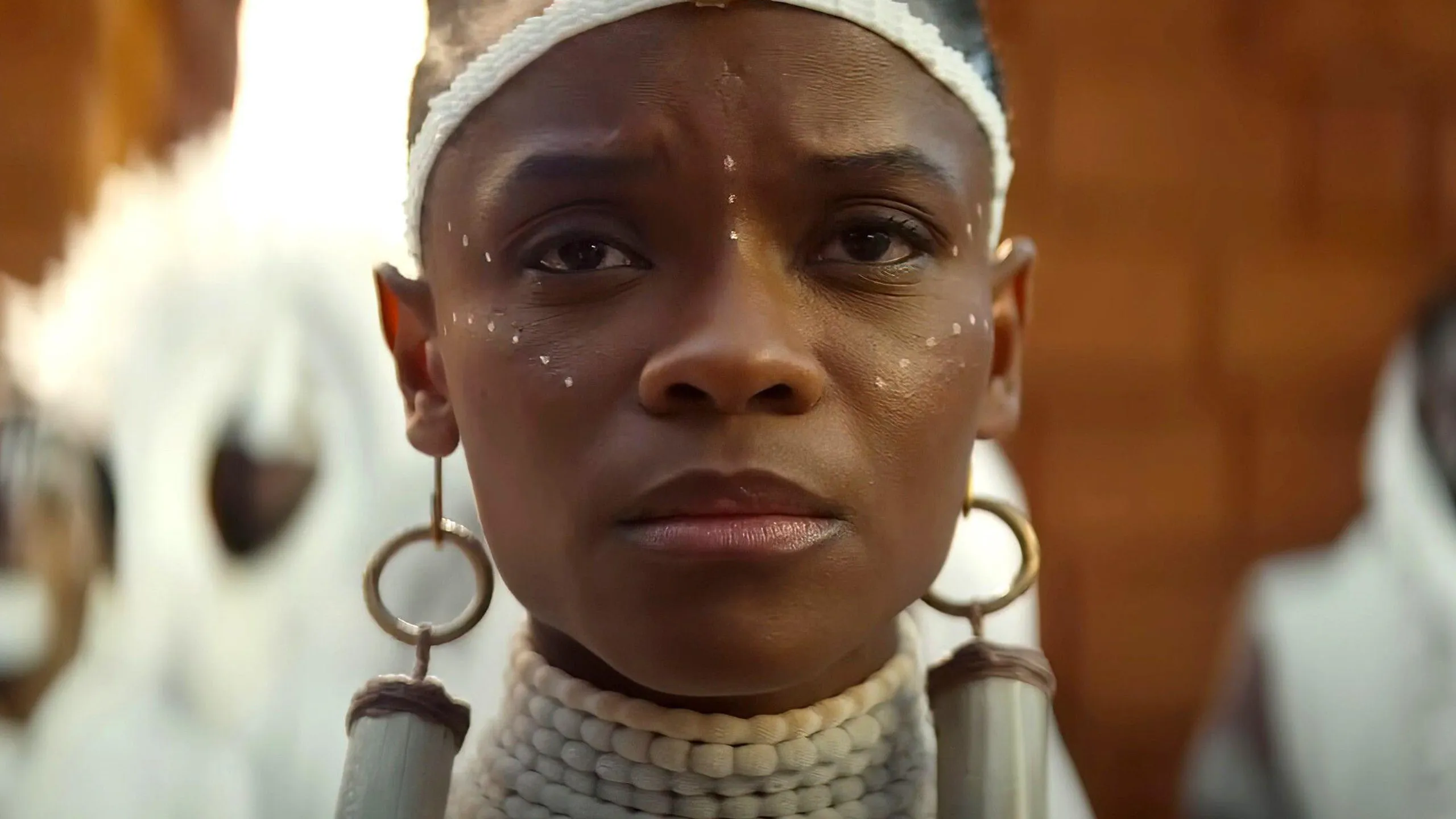
Kiki Layne was only meant to be helping a friend audition when she landed If Beale Street Could Talk
Jessica Cole
14 Feb 2019
Image: Annapurna Pictures
James Baldwin’s novel If Beale Street Could Talk centres around the budding relationship of childhood sweethearts Tish and Fonny. Fonny is an aspiring artist and Tish is pregnant with his child, yet the pair are denied the space to be the star-crossed lovers of woozy white romances. From trying to rent an apartment to buying groceries for date night, their every step is encroached on by spite and prejudice. They are a black couple – they can never just be in love – as their very essence is despised by their white world. As the story unravels the pair are strung out by a judicial and social system that ensnares both them and their families. Through this, Baldwin squeezes, tests and stretches how far familial and spousal love can and will go, in conquering all. This is Harlem, in the 1970s.
With three Oscar nods, everybody is talking about If Beale Street Could Talk, the newest creation from Moonlight director Barry Jenkins, which surprisingly marks the first time a James Baldwin fiction has been fully adapted for the big screen. The film is also a major debut for 27-year-old Kiki Layne as the wholesome Tish, who has come from relative obscurity to being one of the bright new faces remaking Hollywood. gal-dem caught up with Kiki to discuss how Lion King inspired her to act, her almost accidental casting for Jenkins, and how we all need to remember to look at the bigger picture.
You’ve said in the past that watching movies like Lion King when you were younger inspired you to become an actor. What was your journey like starting from that to now being the leading lady in If Beale Street Could Talk?
Kiki: I guess when I was younger, it was when I realised the voices behind those characters were actors, that I was like “oh so I can be a Lion too”. So from there, at the age of seven, I started going to a local performing arts centre near where I grew up in Cincinnati – thats when I first started acting in a school setting, and then I just never stopped! I went to college for acting in Chicago at Depaul University, which is where I really got interested and into the theatre scene. So I spent a few years in Chicago working really hard within the local theatre community, and then I made the move to L.A. – just took a leap of faith – and decided to do the thing that scared me.
How old where you at that point?
That was June 2017, I was 25 when I moved. You can do the math, haha.
What was that process like for you, moving to L.A, and then trying to get your foot in the door?
It was definitely quite a shift because I moved very suddenly, and had nothing planned out. So when I first got there it was just trying to get my whole life together, as I’d just uprooted myself and moved to L.A. So those first couple of months were rough, and I definitely started to feel discouraged and just questioned if I’d moved too fast. I was actually considering going back to Cincinnati to regroup, and then coming back out again a little later. But I ended up staying and I’m glad I did, because Beale Street came up two weeks after I’d considered going back home.
“Beale Street came up two weeks after I’d considered going back home”
What was the casting process like for Beale street?
So my process was funny. It actually started off with me only helping a friend with his audition – he was auditioning for the role of Fonny and he’d asked me to be his reader, reading the role of Tish. So thats when I first got introduced to even the thought that this film was being cast. But at the time I still didn’t have representation in L.A., so I didn’t know how I was going to submit a tape. It wasn’t until a few weeks later when I was finally able to get a manager out in L.A., that I was able to submit my own tape.
So your friend didn’t get the role?
No he didn’t [laughs].
You stole it!
He’s fine. He’s on TV – he’s great.
So it was very much was an unexpected set of circumstance that led you to play the role of Tish. Could you ever have imagined that your first film would be with the Academy Award winning Barry Jenkins, alongside Regina King and all of these amazing black actors?
Absolutely not. When I moved to L.A. I did start feeling that there was a purpose for why I was there. Which is why I ended up staying, like something was supposed to happen for me here, but I just didn’t know what that thing was. So when it finally came to be I was just so thankful – I’m still so thankful. I couldn’t really imagine a better way to start the career that I want to have.
You’ve acted before, but this has been a pretty phenomenal entrance. How important is it to be resilient within the acting industry?
Oh, incredibly important. You are going to get told “no” way more times then you are going to get told “yes”. So. Many. More. Times. You really have to build up a tough skin, and really believe in yourself. Any “no” means there’ll be a “yes” to something else, which is also something that I still have to constantly remind myself. This “no” right now only means that the universe is preparing me for a “yes” somewhere else.
I’m sure it’s very hard to build that resilience up. It seems like it is a constant process in terms of reminding yourself that is what it is, and that there is a bigger picture out there for you.
Oh yeah definitely. Which is why it is important to be mindful of the people you have around you. Because sometimes you are not in a position where you can give yourself that encouragement, and lift yourself up. You definitely have to make sure that you have people around you, that can do that for you. When you are doubting yourself so much it is important to have people around you that can say “no, you are doing the right thing” or “no just give it more time – you are strong or good enough for this”. Because it is tough.
What’s your favourite scene from Beale Street?
My favourite scene is when we are running out in the street, after we get the apartment. It was just so fun to be able to just scream. The freedom of screaming in the middle of the street as an adult, was great. Another favourite of mine is the scene when Mr. Rivers is holding Tish in the kitchen. Just seeing a black father holding his daughter is so beautiful.
“The career I want to have is one with variety. I want to do everything”
For sure, and it isn’t a dynamic that is often explored on screen, that relationship between fathers and daughters. So you have Native Sun premiering at Sundance, and you are still only in your 20s! How do you see your career developing, and what is on your list?
The career I want to have is one with variety. I want to do everything, all different types of genres and all different types of roles. So that is what interests me the most in terms of the long term vision for my career. I am very thankful that my introduction has been with films like Beale Street and Native Son. These films let audiences and the industry know that I am not afraid to use my art to speak and to tell real stories that are very much affecting people today. But I also want to have fun and do weird stuff. It is important for me to not be put into any type of box, especially because I am a black actress. For dark-skinned actresses with natural hair (like me), we’ve seen how limited our roles can be, and where people assume what kind of stories we can tell. I want to break those barriers, and break out of that box as well.
Do you think in your career you have been affected by colourism?
Absolutely – I watched that documentary Dark Girls – those five-years-old kids have some sense of understanding that the lighter doll is the more desirable one. How does that get into us, at such a young age? I have had moments of even looking at casting breakdowns, and it’ll ask for say a “young pretty girl” and I’ll instantly think “oh, thats not for me”. Historically and systematically I’ve been taught that I’m not the pretty girl, or that I am the pretty girl’s friend. But we don’t get to be the pretty girl. So I just start questioning stuff like that. Colourism in Hollywood is extremely real.
“I don’t think we are necessarily being asked to be seen anymore. There are so many platforms, ways to get things out there, and to make things happen”
Do you feel like now there is a moment happening with there being more visibility of black artists, or is there still a long way to go?
There is still a long way to go. But I feel grateful to be coming up in the industry now, when there are more artists of colour and more women. I feel like we are not asking for permission anymore, we’re tired of that. We are creating our own opportunities now, think of the artists who are creating their own production companies, and all of these TV shows. I don’t think we are necessarily being asked to be seen anymore. There are so many platforms, ways to get things out there, and to make things happen. I think it is a very powerful time to be coming up in the industry when we have movies like Beale Street, Blackkklansman, Black Panther, Get Out, Insecure and Atlanta. There was a time when that would have been unheard of. I definitely recognise that I am in a blessed position coming up in the industry right now.
We just need more people behind the screen as well as on the screen.
Yes, because that really is where the power lies, behind the screen. The power lies with the people writing, producing, hiring, putting the resources behind getting these stories told. It is very exciting to see more of us stepping into those roles.
Are there any women in the industry, or even outside of the industry who you really admire and look up to?
Regina King – she has been such a rock for me throughout this whole process. I couldn’t imagine a better person to have and to lean on at the beginning of this journey of myself. I have been very blessed to have her in my life. Also Angela Bassett, who I was just blown away by. It’s been really wonderful to see all of that success happening for her. It’s made me feel even more encouraged that stuff will happen for me, too.
‘If Beale Street Could Talk’ is in cinemas now










